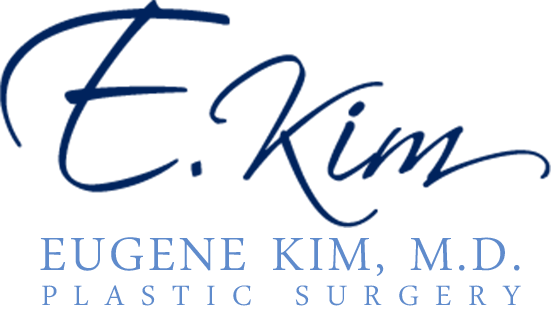 For many women, breast augmentation is a life-changing procedure that can boost confidence and improve self-esteem. However, it’s important to understand that factors such as weight fluctuations can have an impact on the results of your breast augmentation. In this blog post, we will explore how weight gain or loss can affect your breast implants, as well as provide tips on how to maintain your results and when to consider revision surgery. Board certified plastic surgeon Dr. Eugene Kim provides breast augmentation to patients in Beverly Hills, Los Angeles, Santa Monica, West Hollywood, CA, and surrounding communities.
For many women, breast augmentation is a life-changing procedure that can boost confidence and improve self-esteem. However, it’s important to understand that factors such as weight fluctuations can have an impact on the results of your breast augmentation. In this blog post, we will explore how weight gain or loss can affect your breast implants, as well as provide tips on how to maintain your results and when to consider revision surgery. Board certified plastic surgeon Dr. Eugene Kim provides breast augmentation to patients in Beverly Hills, Los Angeles, Santa Monica, West Hollywood, CA, and surrounding communities.
Understanding Breast Augmentation Basics
Breast augmentation is a type of plastic surgery aimed at enhancing the size and shape of the breasts to achieve a more balanced and visually pleasing figure. This procedure can involve the insertion of breast implants under the breast tissue or the chest muscle, depending on the desired outcome and the specific anatomical considerations of the patient. The implants themselves come in various types, including silicone and saline, each offering different benefits and aesthetic results. The choice of implant type, along with the placement and size, is carefully planned during consultations between the patient and the plastic surgeon to ensure that the final outcome meets the patient’s expectations and aligns with their body proportions. This procedure not only aims to increase breast size but also focuses on improving the symmetry and overall appearance of the breasts. It’s a deeply personal decision and one that requires thorough understanding and consideration of the potential impacts, including how changes in body weight might influence the aesthetics of the implants over time. Proper planning and discussion of these factors are crucial to achieving satisfactory results and understanding the long-term commitment to maintaining the appearance of breast implants.
The Impact of Weight Gain on Breast Implants
Weight gain after breast augmentation can subtly or significantly alter the appearance and feel of breast implants. As the body accumulates additional fat, the breast tissue expands. This expansion can lead to a change in the breasts’ size, potentially making the implants appear smaller or disproportioned in relation to the newly gained breast volume. Furthermore, an increase in body weight can cause the skin to stretch. This stretching might result in a shift in the placement of the implants, affecting the breast’s contour and overall aesthetic harmony. Additionally, the added weight can place pressure on the breast implants, possibly leading to a change in their shape or an increased visibility of the implants through the skin. This is particularly noticeable in cases where the implants are placed above the chest muscles.
It’s also worth noting that the distribution of weight gain varies from person to person and can unpredictably affect breast aesthetics. For some, weight gain might enhance the natural look of the breast augmentation, adding volume that complements the implants. For others, it may exacerbate asymmetries or contribute to an unbalanced appearance. In extreme cases, the weight gain could also accentuate or lead to new aesthetic concerns, such as rippling of the implant surface. These changes underscore the importance of maintaining a stable weight post-surgery to preserve the desired outcome and minimize the need for corrective procedures.
The Effects of Weight Loss on Breast Implants
Weight loss after undergoing breast augmentation can lead to noticeable changes in the aesthetics of breast implants. As the body sheds pounds, the decrease in natural breast tissue volume might make the implants more conspicuous, potentially giving them an unnatural appearance or exacerbating a rippling effect that was less visible before weight loss. This reduction in breast volume can also affect the balance and proportion between the implants and the remaining breast tissue, sometimes leading to a mismatched appearance.
In scenarios of significant weight reduction, the skin around the breast area, which may have been stretched from prior weight gain or simply from the initial placement of larger implants, may not retract accordingly. This lack of skin elasticity can result in sagging, affecting not just the aesthetic appearance but also the positioning of the implants within the breast. Sagging skin, combined with decreased tissue volume, can make the breasts look deflated and may alter the original contours achieved through breast augmentation.
These physical transformations highlight the importance of considering the potential for weight changes when planning breast augmentation surgery and underscore the need for a strategic approach to weight management post-procedure. While slight fluctuations in weight are normal and can be accommodated by the body’s natural adaptability, significant weight loss poses challenges that may necessitate additional medical consultation. Addressing these changes might involve exploring surgical options to adjust the implants or corrective procedures to lift and reshape the breast tissue and skin, ensuring the implants remain in harmony with the body’s new contours.
Maintaining Your Breast Augmentation Results During Weight Fluctuations
Navigating weight fluctuations is crucial for preserving the aesthetic achievements of breast augmentation. Establishing a lifestyle that supports weight stability is key. A combination of balanced nutrition and consistent exercise forms the cornerstone of such a lifestyle. Opt for a diet rich in whole foods, vegetables, lean proteins, and healthy fats to fuel your body and support muscle maintenance, which in turn can help manage your weight. Incorporating a variety of physical activities, from cardiovascular exercises to strength training, not only aids in weight control but also contributes to overall health, potentially reducing the risk of conditions that could necessitate sudden dietary or lifestyle changes, which might impact weight.
Moreover, understanding your body’s signals and responding to minor weight changes promptly can prevent significant shifts that might affect your breast implants. Regular check-ups with your healthcare provider can offer insights into maintaining a healthy weight and identifying any underlying issues that could lead to weight fluctuations. Additionally, building a relationship with your plastic surgeon enables open dialogue about your concerns and the provision of tailored advice to navigate changes in your body while keeping the integrity of your breast augmentation intact.
It’s also beneficial to embrace habits that support not just weight stability but overall well-being. Adequate hydration, sufficient sleep, and stress management practices such as meditation or yoga can have positive impacts on your weight and health, thereby supporting the long-term satisfaction with your breast augmentation results. By integrating these approaches into your daily routine, you can effectively manage weight fluctuations and sustain the beauty and confidence gained from your breast augmentation.
When to Consider a Revision Surgery
Navigating the waters of post-breast augmentation changes, especially those stemming from significant weight fluctuations, can sometimes lead to the contemplation of revision surgery. This is particularly the case if these changes have resulted in dissatisfaction with the appearance of your breast implants, such as noticeable asymmetry, displacement, or a change in the desired aesthetic outcome. Revision surgery aims to address these concerns, potentially involving the adjustment of the implants’ size, shape, or position, or the correction of complications that have arisen due to weight changes.
Consulting with a plastic surgeon is a crucial step when considering revision surgery. During this consultation, the surgeon can assess the physical alterations and recommend the most effective surgical options tailored to your unique situation. It’s essential to approach this decision with a clear understanding of what the procedure entails, including the potential risks and the expected recovery process.
Revision surgery, while a solution for some, is a decision that should not be made lightly. It requires careful consideration of the physical and emotional investment involved. Engaging in an open and honest dialogue with your plastic surgeon will provide insight into whether such a procedure is the right path forward for you, taking into account your health, lifestyle, and aesthetic goals. Ultimately, the aim of revision surgery is to enhance your satisfaction with your breast augmentation results, aligning them more closely with your original vision for your body.
Tips for a Healthy Lifestyle Post-Breast Augmentation
After undergoing breast augmentation, adopting a lifestyle that promotes well-being is essential for maintaining your surgical results. Emphasize a diet that balances nutrients, focusing on an intake of fruits, vegetables, lean proteins, and whole grains to nourish your body and support its recovery and maintenance. Staying hydrated is equally important; aim to drink plenty of water throughout the day, as it aids in skin elasticity and overall health.
Incorporating regular physical activity is crucial not only for weight management but also for enhancing your cardiovascular health and strengthening muscles. Choose exercises that you enjoy and that fit your recovery timeline, as advised by your plastic surgeon. Initially, this may mean light walking and gradually advancing to more strenuous activities as you heal.
It’s also important to avoid lifestyle choices that can negatively impact your surgical results. Smoking and excessive alcohol consumption can interfere with your body’s healing process and lead to complications or undesired changes in the appearance of your breast implants.
Remember, your body needs time to adjust after surgery. Allow yourself ample rest, and ensure you get quality sleep to facilitate healing. Managing stress through mindfulness practices, yoga, or meditation can also support your physical health and contribute to a positive recovery experience.
By integrating these healthy habits into your daily life, you support your body’s ability to maintain the enhancements achieved through breast augmentation. This approach not only contributes to the longevity of your results but also to your overall satisfaction and confidence in your appearance.
Contact the Office of Beverly Hills Plastic Surgeon Dr. Eugene Kim
Click here see more plastic surgery procedures and treatments performed by Board Certified Plastic Surgeon, Dr. Eugene Kim on patients in Beverly Hills, Los Angeles, West Hollywood, Santa Monica, CA and surrounding areas or call 310-271-6996 to schedule a consultation.
